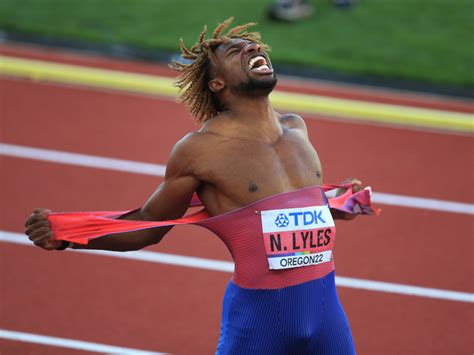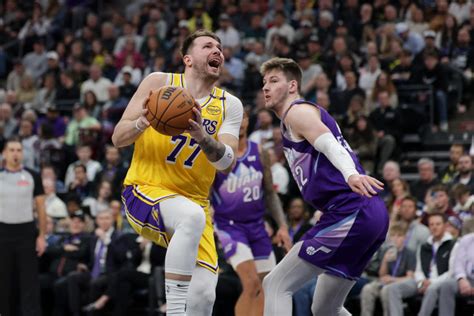
Danny Ainge, former Boston Celtics executive, emphatically asserts that Larry Bird’s unparalleled basketball IQ remains unmatched in the modern NBA, highlighting Bird’s exceptional court vision, passing ability, and anticipatory skills.
Danny Ainge, reflecting on his time playing alongside and observing Larry Bird, insists that the Celtics legend’s basketball IQ remains unparalleled, even in today’s NBA. Ainge’s comments underscore Bird’s unique ability to anticipate plays, make pinpoint passes, and understand the game at a level few others have achieved. He emphasized that Bird’s instincts and comprehension of the game allowed him to consistently make the right decisions, even in high-pressure situations, setting him apart as a truly exceptional player.
“To see it happen [with Larry Bird] was more the norm than the exception,” Ainge explained, emphasizing the routine nature of Bird’s brilliance. This sentiment encapsulates the essence of Bird’s game: a blend of skill, intelligence, and anticipation that made the extraordinary seem commonplace. Ainge’s assertion isn’t merely nostalgic praise; it’s a recognition of Bird’s unique understanding of the game’s nuances, a quality that transcended eras. Bird’s mastery of angles, spacing, and player tendencies allowed him to consistently exploit defensive weaknesses and create scoring opportunities for himself and his teammates. His impact on the Celtics dynasty of the 1980s is a testament to his exceptional basketball acumen.
Ainge’s remarks resurface amidst constant debates about the greatest players in NBA history, and the evolution of the game itself. While athleticism and specialized skills have undoubtedly advanced, Bird’s all-encompassing understanding of basketball strategy and execution continues to set a high standard. This perspective invites fans and analysts to re-evaluate the criteria used to assess player greatness, considering not only statistics and highlight-reel plays but also the more subtle, yet equally impactful, elements of basketball intelligence.
Bird’s career statistics, while impressive, only tell a portion of the story. His three NBA championships, three MVP awards, and two Finals MVP awards highlight his individual brilliance and leadership capabilities. However, it was his ability to elevate the play of those around him that truly defined his legacy. He consistently made his teammates better through his exceptional passing, court vision, and ability to anticipate their movements. This unselfishness and commitment to team success were hallmarks of his game.
Ainge, who played with Bird for several seasons in Boston, witnessed firsthand the extraordinary qualities that set him apart. He recalled instances where Bird would make seemingly impossible passes, anticipate defensive rotations, and exploit mismatches with uncanny precision. These moments, Ainge argues, were not simply the result of luck or athleticism; they were the product of Bird’s deep understanding of the game and his ability to process information at an incredibly rapid pace.
The comparison between Bird and modern NBA players is inevitable. While today’s athletes may possess greater physical gifts, Ainge suggests that Bird’s mental acuity remains unmatched. Players like LeBron James, Stephen Curry, and Nikola Jokic are often praised for their high basketball IQ, and they certainly possess exceptional skills and understanding of the game. However, Ainge’s comments suggest that Bird’s unique combination of instincts, anticipation, and court awareness places him in a category of his own.
Bird’s influence on the game extends beyond his on-court performance. His competitive spirit, trash-talking antics, and unwavering confidence helped to define the culture of the Celtics and the NBA during the 1980s. He embraced the challenge of facing the league’s best players and consistently rose to the occasion, delivering memorable performances in the biggest games. His rivalry with Magic Johnson helped to revitalize the NBA and capture the imagination of fans around the world.
Furthermore, Bird’s impact as a coach and executive should not be overlooked. After retiring from playing, he served as the head coach of the Indiana Pacers, leading them to the NBA Finals in 2000. He later became the Pacers’ president of basketball operations, where he demonstrated his keen eye for talent and his ability to build a successful team. His success in these roles further solidified his reputation as one of the most knowledgeable and respected figures in basketball history.
In conclusion, Danny Ainge’s assertion that Larry Bird’s basketball IQ remains unmatched is a powerful testament to the enduring legacy of one of the game’s greatest players. Bird’s unique combination of skill, intelligence, and competitive spirit made him a dominant force on the court and a transformative figure in the history of the NBA. His ability to anticipate plays, make pinpoint passes, and elevate the play of those around him set him apart as a truly exceptional player. While the game has evolved and new stars have emerged, Bird’s impact on basketball remains undeniable, and his legacy as one of the smartest players to ever grace the court is secure. The constant comparison between eras serves as a reminder of the timeless qualities that define greatness in basketball, and Larry Bird continues to embody those qualities in the eyes of many. His understanding of the game, his ability to make those around him better, and his competitive fire are all attributes that transcend eras and make him a true icon of the sport.
Bird’s career accomplishments include:
- 3x NBA Champion (1981, 1984, 1986)
- 3x NBA Most Valuable Player (1984-1986)
- 2x NBA Finals MVP (1984, 1986)
- 12x NBA All-Star
- 9x All-NBA First Team
- NBA Rookie of the Year (1980)
- 3x NBA Three-Point Contest Champion (1986-1988)
These accolades, combined with his impact on the court and his contributions to the game, solidify his place among the all-time greats.
Expanded Context and Analysis
Delving deeper into Ainge’s perspective reveals a nuanced understanding of what constitutes basketball IQ. It’s not merely about memorizing plays or understanding statistical trends; it’s about an innate ability to read the game, anticipate opponents’ actions, and react accordingly with speed and precision. Bird possessed this innate ability in abundance.
One aspect of Bird’s basketball IQ that often goes unnoticed is his exceptional spatial awareness. He had an uncanny ability to understand the positioning of all ten players on the court at any given moment, allowing him to make split-second decisions about where to pass the ball, how to attack the basket, and when to take a shot. This spatial awareness was not something that could be taught; it was an inherent part of his game.
Another key element of Bird’s basketball IQ was his ability to anticipate defensive rotations. He could often predict where the help defense was coming from and adjust his attack accordingly. This allowed him to exploit mismatches, create open shots for his teammates, and avoid turnovers. His understanding of defensive strategy was unparalleled.
Bird’s passing ability was also a direct result of his high basketball IQ. He was not simply throwing the ball to open teammates; he was anticipating their movements, leading them to the basket, and delivering passes that were perfectly timed and placed. His passes often seemed to defy logic, threading the needle through tight spaces and finding teammates in unexpected locations.
Furthermore, Bird’s basketball IQ extended beyond his on-court performance. He was also a master of psychological warfare, using trash talk and gamesmanship to gain an edge over his opponents. He would often tell defenders what he was going to do before he did it, then proceed to execute his plan with flawless precision. This ability to get inside his opponents’ heads and disrupt their focus was a valuable asset.
The modern NBA has seen an increase in the emphasis on analytics and data-driven decision-making. While these tools can be valuable, they cannot replace the intuitive understanding of the game that Bird possessed. Analytics can provide insights into player tendencies and statistical probabilities, but they cannot account for the unpredictable nature of human behavior and the subtle nuances of the game. Bird’s ability to read the game and react accordingly was based on years of experience and an innate understanding of human psychology.
The evolution of the game has also led to a greater emphasis on athleticism and specialized skills. Today’s players are often bigger, faster, and stronger than their predecessors. However, this increased athleticism has not necessarily translated into higher basketball IQ. In fact, some argue that the focus on athleticism has come at the expense of fundamental skills and understanding of the game. Bird, while not the most physically dominant player, relied on his intelligence and skill to overcome his athletic limitations.
The comparison between Bird and LeBron James is a common topic of debate among basketball fans. Both players are considered to be among the greatest of all time, and both possess exceptional basketball IQ. However, their styles of play and approaches to the game are quite different. James is a dominant physical force who relies on his athleticism and power to overwhelm opponents. Bird, on the other hand, was more cerebral and relied on his intelligence and skill to outsmart his opponents. While James may have a slight edge in terms of athleticism, Bird’s basketball IQ is arguably higher.
Similarly, the comparison between Bird and Stephen Curry is also interesting. Curry is known for his exceptional shooting ability and his innovative style of play. He has revolutionized the game with his long-range shooting and his ability to create scoring opportunities for himself and his teammates. However, Bird’s all-around game and his ability to impact the game in so many different ways give him the edge in terms of overall basketball IQ.
Nikola Jokic, the Denver Nuggets’ star center, is another player who is often praised for his high basketball IQ. Jokic is an exceptional passer, rebounder, and scorer, and he has a unique ability to make his teammates better. However, Bird’s defensive prowess and his ability to dominate games in the clutch give him the edge in this comparison.
The debate over who has the higher basketball IQ is ultimately subjective, and there is no definitive answer. However, Ainge’s comments serve as a reminder of the importance of basketball intelligence and the unique qualities that made Larry Bird one of the greatest players of all time.
Bird’s Influence on Future Generations
Larry Bird’s influence extends beyond his playing days and resonates with aspiring basketball players even today. His emphasis on fundamentals, court awareness, and team play serves as a model for young athletes who aspire to reach the highest levels of the sport. Coaches and trainers often use Bird’s example to illustrate the importance of developing a well-rounded game and understanding the nuances of basketball strategy.
Many modern NBA players have cited Bird as an inspiration, praising his intelligence, skill, and competitive spirit. They recognize that his success was not solely based on physical gifts but also on his ability to outthink and outmaneuver his opponents. Bird’s legacy as a player who maximized his potential through hard work and dedication continues to inspire generations of basketball players.
Moreover, Bird’s impact on the development of basketball in Indiana is undeniable. His tenure as coach and executive of the Indiana Pacers brought a renewed sense of pride and excitement to the state. He instilled a winning culture and helped to develop young talent, leaving a lasting legacy on the Pacers organization and the Indiana basketball community.
In conclusion, Danny Ainge’s comments about Larry Bird’s unmatched basketball IQ are a powerful reminder of the enduring legacy of one of the game’s greatest players. Bird’s unique combination of skill, intelligence, and competitive spirit made him a dominant force on the court and a transformative figure in the history of the NBA. His ability to anticipate plays, make pinpoint passes, and elevate the play of those around him set him apart as a truly exceptional player. While the game has evolved and new stars have emerged, Bird’s impact on basketball remains undeniable, and his legacy as one of the smartest players to ever grace the court is secure. The constant comparison between eras serves as a reminder of the timeless qualities that define greatness in basketball, and Larry Bird continues to embody those qualities in the eyes of many. His understanding of the game, his ability to make those around him better, and his competitive fire are all attributes that transcend eras and make him a true icon of the sport. Ainge’s perspective provides valuable insight into the qualities that made Bird so special and why his legacy continues to endure.
FAQ Section:
Q1: What specifically does Danny Ainge mean by “basketball IQ” in the context of Larry Bird?
A1: Ainge refers to Bird’s innate ability to read the game, anticipate plays, make pinpoint passes, and understand the positioning of all players on the court. This includes spatial awareness, anticipation of defensive rotations, and a mastery of psychological warfare, exceeding mere knowledge of plays and statistics.
Q2: How does Larry Bird’s basketball IQ compare to that of modern NBA stars like LeBron James, Stephen Curry, and Nikola Jokic?
A2: While players like James, Curry, and Jokic possess exceptional skills and understanding of the game, Ainge suggests that Bird’s unique combination of instincts, anticipation, and court awareness places him in a category of his own. Bird’s spatial awareness and ability to predict defensive rotations are particularly highlighted as unmatched.
Q3: Beyond his playing career, how has Larry Bird demonstrated his basketball IQ?
A3: Bird demonstrated his basketball IQ as the head coach of the Indiana Pacers, leading them to the NBA Finals in 2000. He also served as the Pacers’ president of basketball operations, showcasing his keen eye for talent and ability to build a successful team.
Q4: How did Larry Bird’s basketball IQ impact the Boston Celtics during his playing career?
A4: Bird’s basketball IQ was central to the Celtics’ success in the 1980s. His ability to elevate the play of those around him through exceptional passing, court vision, and anticipation of their movements made the entire team better. He was also able to consistently make the right decisions in high-pressure situations.
Q5: How has the evolution of the NBA game affected the importance of basketball IQ, and how does Bird’s legacy fit into this evolution?
A5: Despite the increasing emphasis on athleticism and specialized skills in the modern NBA, Bird’s legacy serves as a reminder of the importance of basketball intelligence. While analytics and data-driven decision-making are valuable tools, they cannot replace the intuitive understanding of the game that Bird possessed. His emphasis on fundamentals, court awareness, and team play serves as a model for aspiring players.









